Draco Malfoy: Enemy or Victim of Fate?
Share
Throughout the Harry Potter series, Draco Malfoy emerges as one of Harry Potter's key antagonists. With his arrogance, disdain, and often cruel behavior, Draco quickly becomes an easy character for readers to dislike. However, if we delve deeper into his psychology and family background, we discover a more complex side to him. Is Draco truly a villain, or is he a victim of circumstances, trapped by forces beyond his control?
1. Origins and Family
Draco Malfoy was born into the prestigious pure-blood Malfoy family, where the ideology of pure-blood superiority was highly valued. From a young age, Draco was taught by his parents, especially his father Lucius Malfoy, to view Muggles (non-magical people) and Muggle-born witches and wizards as inferior. This upbringing shaped Draco’s arrogant and elitist attitude.
Family pressure: The Malfoys had close ties to Voldemort and the Death Eaters. From a young age, Draco grew up in an environment filled with hatred and obsession with power. This heavily influenced the decisions and actions Draco would take later on.
Loyalty to his family: Whether he wanted to or not, Draco was bound by the expectations and pressures from his parents. This made it difficult for him to develop an independent, more humane worldview. The constant need to meet his family's expectations, and the fear of disappointing them, made Draco a victim of his circumstances.
2. Rivalry with Harry Potter
Draco Malfoy and Harry Potter began their relationship in opposition. From the start, Draco looks down on Harry after he refuses Draco's offer of friendship and chooses to befriend Ron Weasley, a family Draco despises for being poor and supportive of Muggle's rights.
Jealousy: Draco grew up in a wealthy, powerful family but always lived in Harry's shadow, a boy who was famous for defeating Voldemort. This fueled Draco's deep jealousy, as he craved the attention and recognition Harry received but could never gain the same admiration from friends and teachers.
Psychological conflict: The rivalry with Harry was not only personal but also stemmed from the Malfoy family's ideology of pure-blood supremacy. This left Draco trapped between wanting to prove himself superior and striving to maintain his family's honor.
3. Becoming a Death Eater: Choice or Burden?
One of the biggest turning points in Draco's life was when he became a Death Eater in the later books. Under immense pressure from Voldemort, Draco was tasked with assassinating Dumbledore—a mission he was not ready to undertake.
Family burden: Draco's decision to become a Death Eater was not one made out of free will. After his father, Lucius Malfoy failed to serve Voldemort, Draco was forced to take on a mission to restore his family’s honor. This was a tremendous burden for someone as young as Draco.
Fear and helplessness: Throughout Harry Potter and the Half-Blood Prince, we see Draco’s fear and exhaustion as he grapples with the task of assassinating Dumbledore. Instead of a cold-blooded villain, Draco appears as a desperate boy, overwhelmed by a mission he cannot control and constantly afraid for his family's safety. When faced with Dumbledore, Draco cannot bring himself to kill him, showing that Draco is not inherently evil but a victim of circumstance.
4. Draco – A Victim of a Toxic Ideology
Draco is the product of a system of racism and class division in the wizarding world. The pure-blood ideology that his family supported is the main reason Draco became a teenager with strong prejudices.
Distorted upbringing: If Draco had grown up in a different environment, with more open-minded ideals, he might have developed into a different person. He never had the opportunity to escape the shadow of his family and the dogma they imposed on him.
Interactions with other characters: Despite constantly clashing with Harry, Hermione, and Ron, there are moments when Draco shows discomfort with his cruelty. For example, his shame when facing Hermione in various situations suggests that Draco is aware of the wrongness of the pure-blood ideology he was taught.
5. Draco’s Redemption
In the final battle at Hogwarts, Draco does not play a direct role in fighting Voldemort, but he also does not fully align himself with the dark side. Ultimately, Draco’s decision not to kill Dumbledore and his reluctance to continue serving Voldemort played a part in his redemption.
Life after the war: After the war, Draco chose a more peaceful path. He married Astoria Greengrass, a witch who did not support pure-blood ideals, and raised his son with a more open mindset. This shows Draco’s growth and desire for redemption, as he tries to leave behind the mistakes of his past.
6. Draco Malfoy – Enemy or Victim?
Looking back at Draco Malfoy’s entire journey, it’s clear that he is not purely an enemy or villain. While Draco causes harm and acts cruelly towards others, he is also a victim of fate, pushed into situations beyond his control.
Harry’s enemy, but not the world’s: Draco was Harry’s enemy throughout their time at Hogwarts, but in the grand scheme, he was simply a boy caught in a helpless situation. He had to face his family’s expectations and Voldemort’s influence.
Victim of circumstances: Draco did not have full freedom in his decisions. He was manipulated by his family and Voldemort, and when he finally had the chance to break free, he chose peace over continuing down the dark path.
Draco Malfoy is not inherently evil but a victim of a flawed ideological system and immense family pressure. His life reflects the complexity of growing up in a world controlled by hatred and prejudice. Through Draco’s character development, we learn that sometimes our enemies are not pure villains but individuals who have been pushed into making wrong choices due to their circumstances.
Check out some Harry Potter inspired designs here
